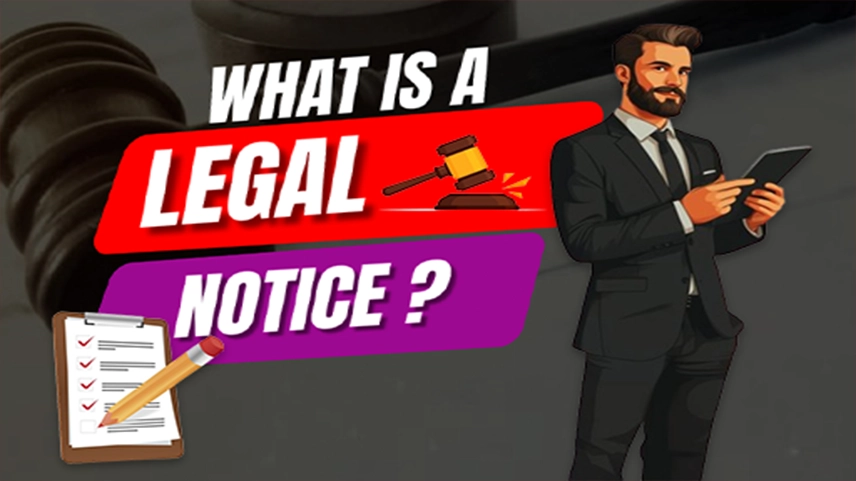
What is a Legal Notice? A Complete Guide for Beginners

Have you ever received a letter that said, "LEGAL NOTICE," and felt like you were going to throw up? You are not the only one. Legal notices endorse urgency and are meant to stir attention. They are the very first step in resolving disputes to avoid going to court right away. Whether you are either sending out a legal notice or responding to a legal notice, it is important to know how legal notices are supposed to work and why they are important.
What is a Legal Notice?
A legal notice is a formal written communication that tells a person or business that there is a legal issue. It serves as a warning to a party to avoid impending legal action if the matter is superiorly addressed by the parties involved.
Legal notices are serious because:
- They specify what the complaint is and what you are seeking.
- They give the other party a timeframe to respond.
- They show you intend to proceed with legal action.
- They can help resolve disputes before a case is filed.
When Do You Have to Send a Legal Notice?
Legal notices are used in many situations, such as:
Commercial and Contractual Disputes
- Breach of Contract: When all parties did not uphold the terms of the contract.
- Issues with Payment: When a payment is owed and not paid.
- Poor Service: When services rendered do not meet the standards established in the contract.
Property Disputes
- Eviction: Providing formal notice to a tenant for eviction.
- Property encroachment: Where a person unlawfully occupies your property.
- Disputes with Society: Between members or management of a housing society.
Personal Rights Protection
- Defamation: when someone diminishes your reputation with false words.
- Copyright and Trademark Infringement: Where you are able to enforce your intellectual property.
- Consumer Complaints: where faulty products or poor services are received.
Employment Disputes
- Unlawful Discharge: Where you contend with an illegal termination of employment.
- Harassment at work: For taking action as a result of the hostile work environment.
- Pending Dues: As a way to recover unpaid salary or benefits.
What Makes a Legal Notice Effective
An effective legal notice should follow a specific structure:
- Parties to the Notice: Name of both parties and contact information.
- Subject: An appropriate heading describing the conflict.
- Facts: A chronological account of the facts, complete with the evidence.
- Legal Basis: The citation of the relevant laws to support your claims.
- Demands: Clearly indicate what action you want taken by the other party.
- Next steps: Specify what legal action you will take if they do not comply.
- Signature: Advocate's signature and credentials.
When Is It Necessary to Send a Legal Notice?
It is not always necessary to send a legal notice, as the law does provide you with the opportunity to do so. In some situations, legal notice is mandatory, such as
- Government cases: You must give them 60 days' notice before you can sue them.
- Check bounce cases: You must give 30 days' notice after the check is returned.
- Consumer complaints: You often need to give prior notice of your intention to approach a consumer forum.
- Divorce: Sometimes a notice of intent has to be provided.
In other cases it is simply a good idea to send a legal notice. It demonstrates you have made an effort to resolve the issue amicably and can also establish a written record of your attempt.
What Should You Do If You Receive a Legal Notice?
If you receive a legal notice, take the following steps.
- Read the notice and understand what claims are being made.
- Gather evidence that relates to the issue.
- Assess the claims and your potential defenses.
- Decide whether to respond by way of settlement or negotiation or challenge the claims.
- Consult with an advocate to prepare an appropriate response.
- Make sure you respond to the legal notice before the deadline to avoid any further difficulty.
Conclusion
A legal notice should not be a cause for concern but rather a tool to safeguard your rights and interests. Whether you are sending one or receiving one, taking prompt and thoughtful action can make all the difference.
